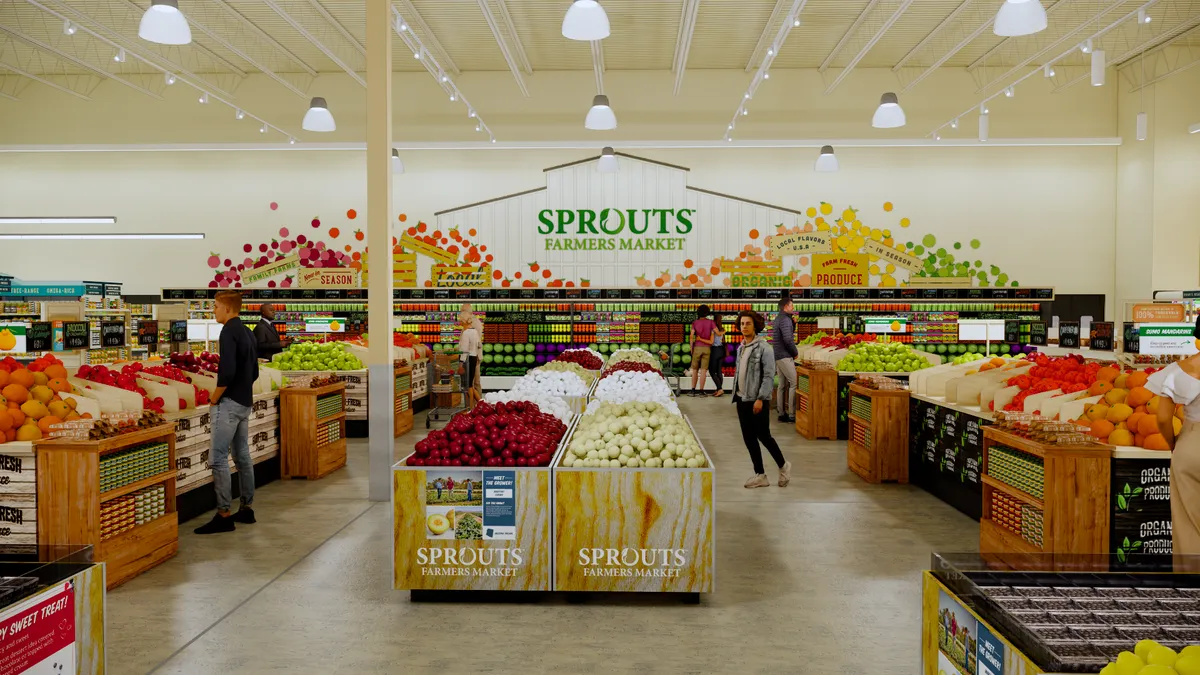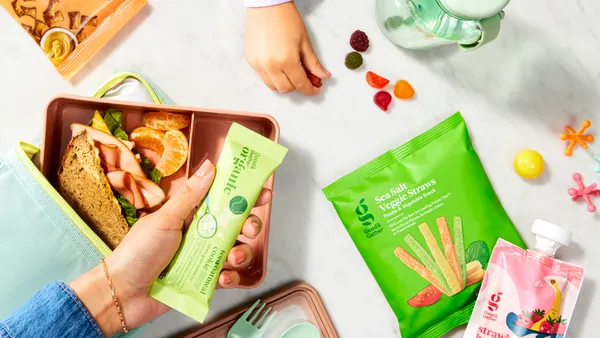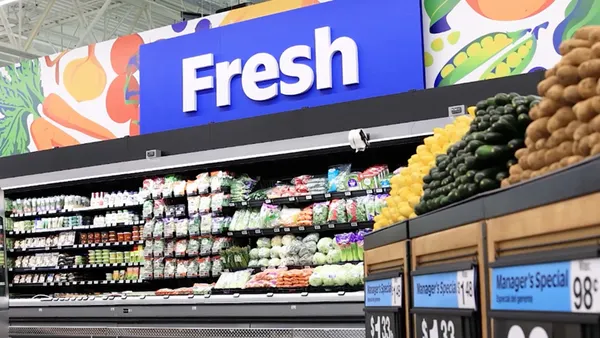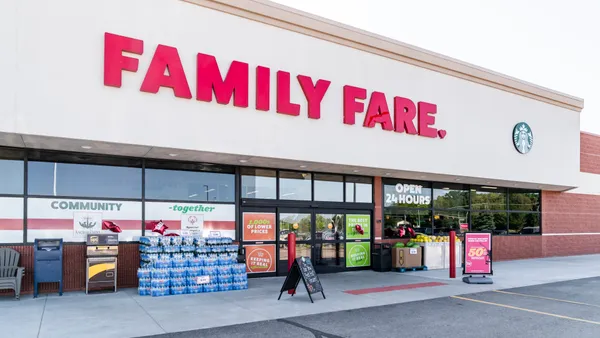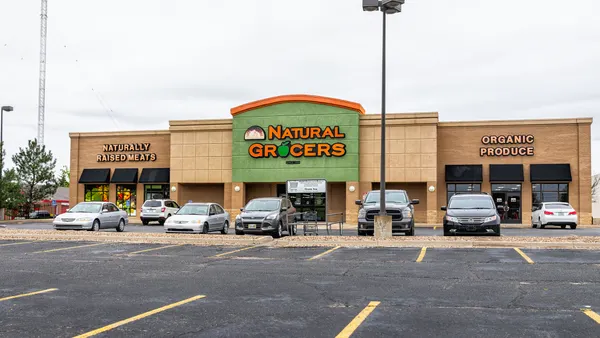Dive Brief:
- Rising inflation, gas prices and other macroeconomic factors led to lighter consumer baskets in the first quarter for Sprouts Farmers Market, executives said during the company’s earnings call on Wednesday, with shoppers buying one to two fewer items per transaction compared to the same period a year ago.
- As a result, the specialty grocer expects full-year results to come in at the lower end of its previously outlined guidance, which would equate to flat comparable store sales and total sales growth of around 4%.
- CEO Jack Sinclair said Sprouts has various levers it plans to pull to raise unit sales and boost performance, including enhanced merchandising and a reinvigorated “selling culture” in stores. But analysts issued sharp questions during Wednesday’s call about the chain’s continued underperformance compared to its competitors.
Dive Insight:
Sinclair along with Chief Financial Officer Chip Molloy said inflation and other macroeconomic factors are having more of an impact on company sales than they anticipated at the beginning of the year.
“We believed year-over-year inflation would begin to dissipate as the year progressed and then decline in units per basket would slowly stabilize. However, inflation is not slowing,” Molloy said.
Even though unit sales at the company are down year-over-year, executives said they see encouraging trends elsewhere in the business. Consumer traffic to stores is trending positive compared to last year, Molloy said, and gross margins for the quarter were stable at around 37%. He said the company is passing along price increases to shoppers as inflation grows.
During the company’s Q1, which ended April 3, comparable store sales rose 1.6% while net sales rose 4%, to $1.6 billion.
Molloy noted that Sprouts sees opportunities to increase average basket size through a variety of different initiatives. “In many ways, driving more units in the basket is a bit more within our control,” he said.
This includes sharpening merchandising and marketing messages to play up its competitive produce pricing as well as the unique specialty items that are flowing into stores. In Q1, Sprouts added more than 1,000 new products, Sinclair said. The company has also introduced ordering technology that promises to boost inventory levels even amid ongoing supply chain disruption.
In addition, Sinclair said Sprouts is introducing a reinvigorated “selling culture” to its stores that has been absent during much of the pandemic. He said more employees will be in aisles helping shoppers, product sampling will increase, and the company will hold regional “contests” to encourage higher store performance.
“This idea of creating a selling culture inside the store, I think that was part of the DNA of the company," Sinclair said. "And I think the pandemic kind of took a bit of that away simply because we were spending all our time learning about cleaning things and protecting people and wearing gloves and wearing masks and people were frightened to kind of approach people with some of the fresh products that we have."
The comments reflect Sinclair’s optimism in the revised corporate strategy he introduced after being named CEO in 2019 — a strategy focused on improving store and distribution efficiency while also embracing Sprouts’ identity as a health-focused specialty grocer.
Wall Street analysts, however, indicated that investors are growing impatient with the lack of progress under the new strategy. They noted repeatedly during a question-and-answer session that Sprouts’ comps have underperformed relative to other publicly traded grocery chains throughout the pandemic and that other retailers and suppliers aren't yet seeing the same sales headwinds that Sprouts is. They expressed skepticism that Sinclair’s game plan could improve performance in the near term.
“Do you need to do something more radical to kind of get this business moving?” R5 Capital Analyst Scott Mushkin asked.
In a note to investors on Thursday morning, Barclays Analyst Karen Short said the firm doesn’t believe better merchandising and product differentiation will reverse Sprouts' basket declines.
“While [Spouts] believes it can address its conversion issues by improving in-stocks and strengthening its ‘selling culture’, we don't believe it will be enough to reverse share trends, as we believe customers are likely to become even more price sensitive going forward given persistent inflation,” she wrote.
Sprouts executives reiterated confidence in their game plan, and Sinclair noted that the company’s unique positioning as a specialty grocer makes it difficult to compare to the conventional chains analysts cited during the call. "We're doubling down on being a specialty grocer that has exceptional fresh foods, exceptional pricing, and very differentiated products," he said.
Sprouts opened six stores during Q1, and Sinclair said it’s on track to open between 15 and 20 new stores overall during the fiscal year. Sprouts’ e-commerce sales accounted for 11.5% of sales, and were elevated at the beginning of the quarter due to the omicron surge, Molloy said.



